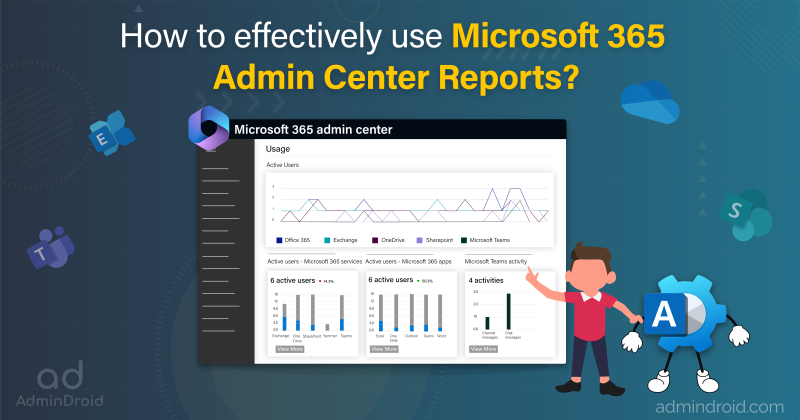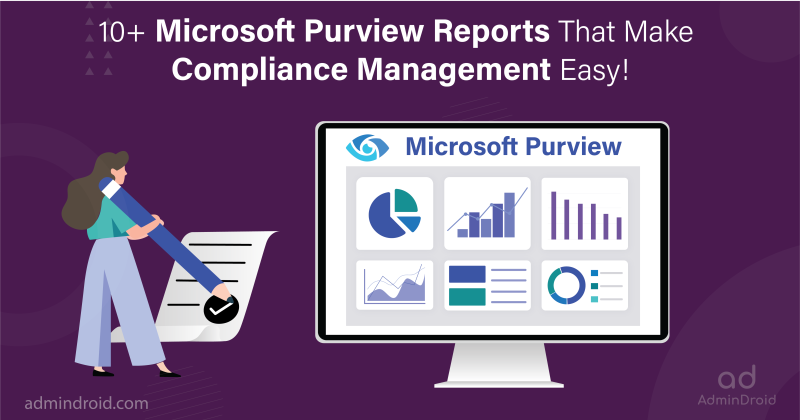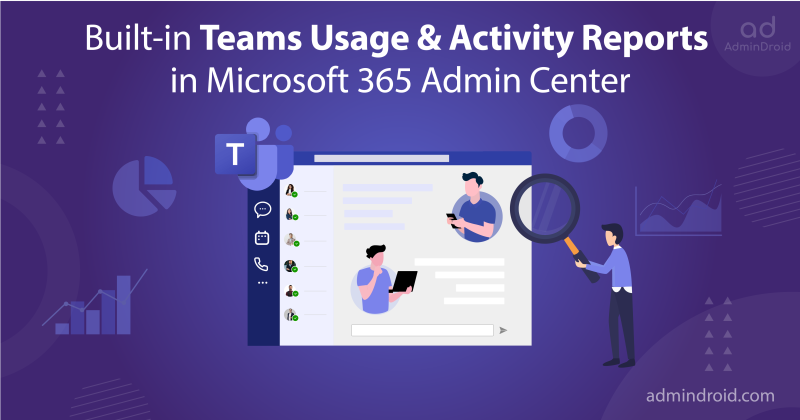It’s a new year, and everyone is beginning with resolutions to enhance their lifestyles by adopting healthier habits and letting go of practices that may pose problems. Similarly, in Microsoft 365 administration, admins should embrace new features and technologies to enhance security and provide richer functionality to their users. To pave the way for this, Microsoft is deprecating less secure and legacy methods.
It’s crucial for administrators to be proactive in preparing their M365 organization for upcoming changes. I’ve compiled a list of Microsoft 365 end-of-support milestones and deprecations planned for 2024. Taking the necessary steps now will help avoid a last-minute rush and ensure a smooth transition.

We’ve crafted a visually appealing timeline infographic to help you effortlessly stay informed about the Office 365 end-of-support schedule!
Additionally, we’ve designed a printer-friendly version that you can print and keep handy on your desk.
Download Infographic | Printer-friendly
For monthly updates on key changes, new features, and critical end-of-support scenarios in Microsoft 365, check our Microsoft 365: Upcoming Changes blog.
Jan 15: Microsoft 365 Browser App Extension- MC694123
The Microsoft 365 browser extension is a free add-on accessible on Microsoft Edge and Google Chrome. It provides access to your Microsoft 365 apps and documents online. Microsoft retiring this browser extension from Jan 15, 2024.
Following this date, the extension will no longer receive security updates, non-security updates, bug fixes, or technical support. And it will be removed from the extension add-on stores on Microsoft Edge and Google Chrome.
Solution: You can remove the M365 browser extension from Edge and Chrome or uninstall the extension.
Jan 31: Stream Live Events Retirement- MC700035
As part of Classic Stream retirement, Microsoft retiring Stream live events from Jan 31, 2024. After that, new live events can’t be created, and any live event scheduled after January 31, 2024, will be automatically removed.
Solution: As a replacement for Stream, Microsoft suggests using Teams live events and Town hall in Microsoft Teams.
Jan’24: Wiki Retirement in Microsoft Teams- MC496248
Microsoft Teams will retire the Wiki feature starting January 2024. After this date, the Wiki tabs and the Wiki app will no longer be accessible in Teams, and users won’t be able to export their data. However, existing data can still be accessed from SharePoint in accordance with the retention policy even after Wiki is deprecated.
Solution: Users can export their wiki content to OneNote notebooks in Teams standard channels. Once exported, users can collaborate using OneNote in the Notes tab.
Mar 01: Search-Mailbox Cmdlet Retirement-MC703706
As of March 1, 2024, the Search-Mailbox cmdlet has been officially retired. This cmdlet, previously utilized to search a user’s mailbox and eliminate malicious content, had been slated for retirement since Microsoft’s announcement in July 2020. Despite the initial announcement, it continued in use due to the absence of a suitable replacement.
Solution: As an alternative to the Search-Mailbox cmdlet, Microsoft recommends employing the ‘New-, Get-, and Start-ComplianceSearch‘ cmdlets. Subsequently, users can utilize the ‘New-ComplianceSearchAction –Export‘ command to export the search results.
Mar 30: Azure AD, Azure AD-Preview, or MS Online Modules Deprecation-MS blog
On March 30, 2024, Microsoft intends to deprecate the Azure AD, Azure AD-Preview, and MS Online PowerShell modules. After this date, Microsoft will provide support exclusively for migrating these PowerShell modules to the Microsoft Graph PowerShell SDK and security fixes to these modules.
Note: These modules will continue to function for at least 6 months after deprecation before being retired.
Solution: Identify PowerShell scripts that use the legacy modules and upgrade from Azure AD PowerShell to Microsoft Graph PowerShell.
Mar 31: Classic Teams Retirement- MC686187
After March 31, 2024, any classic Teams users who haven’t updated to the new Teams version will be automatically upgraded. The new Teams boasts up to 2x faster performance and uses 50% less memory.
Solution: Deploy the new Teams client in your organization by updating the Teams Update policy in the Microsoft Teams admin center.
Mar’24: Retirement of Get, Set, and Remove UserPhotos Cmdlets- MC678855
Microsoft plans to retire the Exchange PowerShell UserPhoto cmdlets (Get-UserPhoto, Set-UserPhoto, and Remove-UserPhoto) in late March 2024.
Solution: Tenant admins can manage user photos through MS Graph PowerShell and Microsoft 365 admin center.
Apr 15: Microsoft Stream Retirement- MC703758
Microsoft is set to retire Stream (Classic) on April 15, 2024, and all videos on Stream (Classic) will be deleted after the retirement date. Admins are urged to migrate their tenant’s Stream (Classic) data to Stream (on SharePoint) before the retirement date to prevent data loss.
Solution: Admins can leverage the Stream migration tool available on Microsoft Admin Center to migrate existing content to Stream on SharePoint. Additionally, they can instruct users to use Stream on SharePoint.
July 01: SharePoint Add-in Retirement- MC693865
As part of the SharePoint Add-in retirement, starting July 1st, 2024, SharePoint Add-ins can no longer be installed from the public marketplace. For new tenants, SharePoint Add-ins will cease to function as of November 1st, 2024. Existing tenants will experience a complete retirement of SharePoint Add-ins by April 2nd, 2026.
Solution: Admins can utilize the Microsoft 365 Assessment tool to scan their tenants for SharePoint Add-in usage. Utilize the SharePoint Add-In Report generated by the scanner tool to identify all SharePoint Add-ins in the tenant and per site.
Subsequently, plan the migration from SharePoint Add-ins to SharePoint Framework.
Sep 30: Business Connectivity Services (BCS) Retirement- MC679737
All Business Connectivity Services features will be retired in Microsoft 365 SharePoint from Sep 30, 2024. This includes features like External lists, columns, content types, and Business Connectivity Services hybrid solutions.
Solution: Microsoft encourages customers to explore Power Apps and its integration capabilities with external data sources to replace their Business Connectivity Services in SharePoint.
Sep 30 – Azure Multi-factor Authentication Server (Ref: MS update)
Azure Multi-Factor Authentication Server (MFA server) provides a way to secure resources with MFA capabilities. Starting September 30, 2024, Azure MFA Server deployments will cease handling multi-factor authentication requests. It will result in authentication failures for your organization.
Solution: To ensure uninterrupted authentication services migrate from the MFA server to Microsoft Entra authentication.
Nov 01: Azure Access Control Services (ACS) in M365- MC693863
Azure ACS serves as the authentication provider for provider-hosted SharePoint Add-ins. Additionally, it facilitates granting access to applications connecting with SharePoint Online. Effective November 1st, 2024, new tenants will be unable to utilize Azure ACS. By April 2nd, 2026, Microsoft will eliminate the ability to use SharePoint ACS for existing tenants.
Solutions: Admins can use the Microsoft 365 Assessment tool to scan their tenants for Azure ACS usage and utilize the modern auth offered via Microsoft Entra ID as an alternative.
Dec 16: Delve Web Retirement- MC698136
Delve currently manages users’ Microsoft 365 profiles to facilitate effective information discovery and organization. However, Delve is set to retire on December 16th, 2024. Many of the features and benefits provided by Delve are already available and enhanced in other Microsoft 365 experiences.
Solution: Key alternatives include:
- Discover documents: Utilize Office.com, Office apps, and Profile Cards.
- View profile data: Make use of Profile Cards, people search on Office.com, and SharePoint search.
- Edit profile: A new edit profile experience is scheduled for release in H2 2024 and can also be edited in SharePoint.
- Organizational view: Accessible through the Profile Card and Org Explorer.
- Favorites: Utilize favorites on Office.com and OneDrive for similar functionality.
- Boards: Unfortunately, there won’t be a direct replacement for Boards.
End of 2024 – Retirement of Mail and Calendar Apps in Windows-MC590123
Starting in 2024, new Windows 11 devices will come pre-installed with the new Outlook for Windows as the default mailbox application, available for free to all users. The Mail and Calendar applications will remain accessible for download through the Microsoft Store until the end of 2024. Microsoft is set to replace the Mail and Calendar apps in Windows with the new Outlook for Windows by the end of 2024.
This blog addresses significant products and features widely used by most users, all set to retire in 2024. Stay informed with our dedicated blog on upcoming changes in Microsoft 365, offering monthly updates on new features, existing functionality changes, and deprecations for a comprehensive understanding.
You can share any additional Microsoft 365 deprecations or end-of-support announcements in the comments below.
Craft your plan, execute with care, and here’s to a happy migration!






